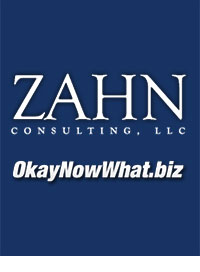
The Quintessential Guide To Using Consultants
Bringing in the right consultant and getting what you want from the relationship is important—yet there has been a lack of specific guidance in this area until now. The Quintessential Guide to Using Consultants presents practical and clear guidelines for maximizing the results of the consulting relationship through each step of the process. Thorough, straightforward and packed with real-world wisdom.

How To Succeed As An Independent Consultant, 4th Ed.
No matter what your field of expertise, this book will help you win clients through a variety of practical, proven techniques you’ll find only here. Packed with real-world, effective business-driving tactics–as well as up-to-the-minute advice on getting the most out of new technologies–this helpful guide will show you how to market yourself in new ways, soar over IRS hurdles, and grow your home-office operation into a thriving practice.

This platform leverages the unique opportunity for one-to-one or one-to-few coaching that allows you to get personalized attention, support, and feedback to improve your own personal and professional alignment with the outcomes you seek. Working alongside of you, David Zahn provides counsel and guidance to help you achieve your specific objectives faster and more effectively.

"Train to Gain, Not Remain: is a comprehensive "how-to" guide explaining exactly how to navigate through the decisions surrounding employee training, skill development, competency enhancement, and delivering business relevant results through appropriate ROI measures.

Moving Forward with Consultants
The executive's guide to determining everything related to using consultants and consulting services; when to use outsiders (and when not to), how to source and select consultants, techniques for successful management of consulting resources, deciding on the appropriate level of compensation and value for consulting services, how to contract with a consultant, ways of evaluating a consultant's contribution, and ultimately - how to separate from a consultant.
A sampling of ZAHN Consulting, LLC on the Web
Questions to Ask Yourself
Do the job descriptions you and your people have represent the work actually being done?
Many companies created job descriptions previously and have not taken the time to update them to reflect the current job roles, skills needed, knowledge required, etc. to successfully perform the function. In other instances, the job description may not have ever been created and someone was simply told to shadow a more experienced person and learn by observing the experienced person (who may or may not have been doing things to maximum effectiveness, efficiency, correctly, etc.).
It is helpful for the company to be clear on what the job tasks include, what tools or resources exist to support the job, what the objectives and expectations of the job include, and more. Rather than being seen as a bureaucratic waste of time, a job description forces both the company and the employee to focus on what the job entails (and what it does not) so that there are clear expectations established for performing the job and assessing performance.

Office Phone - (203) 414-4794 • Cell Phone - 203-414-4794 • E-mail - davidzahn@zahnconsulting.com
© ZAHN Consulting, LLC. All Rights Reserved.